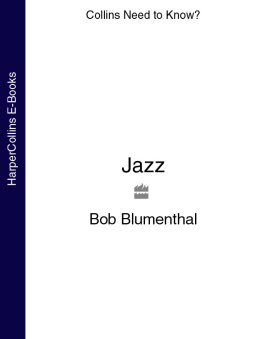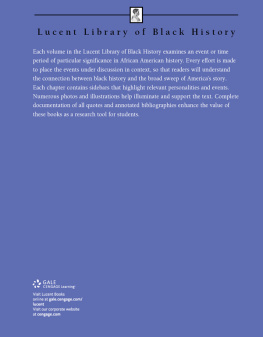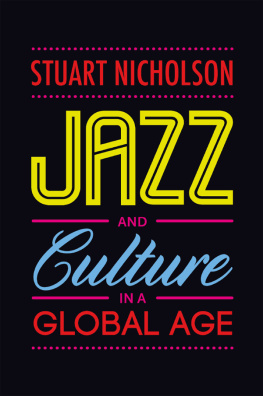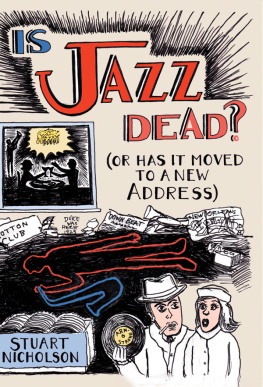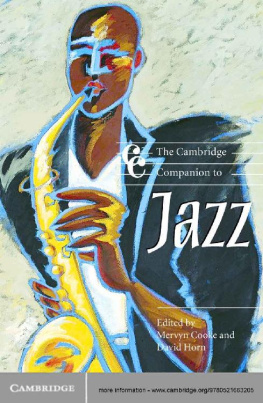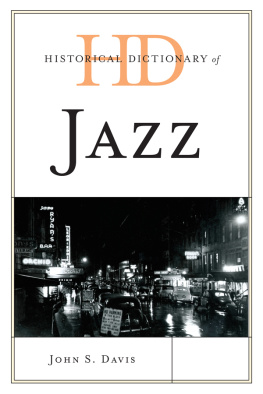
The Global Politics of Jazz in the Twentieth Century
From the mid-1950s to the late 1970s, jazz was harnessed as Americas sonic weapon to promote an image to the world of a free and democratic America. Dizzy Gillespie, Dave Brubeck, Duke Ellington and other well-known jazz musicians were sent around the world including to an array of Communist countries as jazz ambassadors in order to mitigate the negative image associated with domestic racial problems. While many non-Americans embraced the Americanism behind this jazz diplomacy without question, others criticized American domestic and foreign policies while also appreciating jazz thus jazz, despite its popularity, also became a medium for expressing anti-Americanism. This book examines the development of jazz outside America, including across diverse historical periods and geographies shedding light on the effects of jazz as an instrument of state power within a global political context.
Saito examines jazz across a wide range of regions, including America, Europe, Japan and Communist countries. His research also draws heavily upon a variety of sources, primary as well as secondary, which are accessible in these diverse countries: all had their unique and culturally specific domestic jazz scenes, but also interacted with each other in an interesting dimension of early globalization. This comparative analysis on the range of unique jazz scenes and cultures offers a detailed understanding as to how jazz has been interpreted in various ways, according to the changing contexts of politics and society around it, often providing a basis for criticizing America itself. Furthering our appreciation of the organic relationship between jazz and global politics, Saito reconsiders the uniqueness of jazz as an exclusively American music.
This book will be of interest to students and scholars of international relations, the history of popular music, and global politics.
Yoshiomi Saito is Associate Professor in the Graduate School of Human and Environmental Studies at Kyoto University, Japan.
Routledge Advances in International Relations and Global Politics
137. Small States and Hegemonic Competition in Southeast Asia
Pursuing Autonomy, Security and Development amid Great Power Politics
Chih-Mao Tang
138. Empires of Knowledge in International Relations
Education and Science as Sources of Power for the State
Anna Wojciuk
139. Joining the Non-Proliferation Treaty
Deterrence, Non-Proliferation and the American Alliance
Edited by John Baylis and Yoko Iwama
140. New Geographies of Global Policy-Making
South-South Networks and Rural Development Strategies
Carolina Milhorance
141. Norm Dilemmas in Humanitarian Intervention
How Bosnia Changed NATO
Yuki Abe
142. American Hegemony in the 21st Century
A Neo Neo-Gramscian Perspective
Jonathan Pass
143. The Duty of Care in International Relations
Protecting Citizens Beyond the Border
Nina Graegar and Halvard Leira
144. The Global Politics of Jazz in the Twentieth Century
Cultural Diplomacy and American Music
Yoshiomi Saito
For information about the series: www.routledge.com/Routledge-Advances-in-International-Relations-and-Global-Politics/book-series/IRGP
First published 2020
by Routledge
2 Park Square, Milton Park, Abingdon, Oxon OX14 4RN
and by Routledge
52 Vanderbilt Avenue, New York, NY 10017
Routledge is an imprint of the Taylor & Francis Group, an informa business
2020 Yoshiomi Saito
The right of Yoshiomi Saito to be identified as author of this work has been asserted by him in accordance with sections 77 and 78 of the Copyright, Designs and Patents Act 1988.
All rights reserved. No part of this book may be reprinted or reproduced or utilised in any form or by any electronic, mechanical, or other means, now known or hereafter invented, including photocopying and recording, or in any information storage or retrieval system, without permission in writing from the publishers.
Trademark notice: Product or corporate names may be trademarks or registered trademarks, and are used only for identification and explanation without intent to infringe.
British Library Cataloguing in Publication Data
A catalogue record for this book is available from the British Library
Library of Congress Cataloging-in-Publication Data
Names: Saito Yoshiomi, 1976- author.
Title: The global politics of jazz in the twentieth century : cultural
diplomacy and American music / Yoshiomi Saito.
Description: Abingdon, Oxon ; New York, NY : Routledge, 2020. |
Series: Routledge advances in international relations and global politics ;
144 | Includes bibliographical references and index.
Identifiers: LCCN 2019018779 (print) | LCCN 2019019708 (ebook) |ISBN
9780429060595 (Ebook) |ISBN 9780429595363 (Adobe Reader) |ISBN
9780429594076 ( Epub) |ISBN 9780429592782 (Mobipocket) |ISBN
9780367182984 (hardback)
Subjects: LCSH: Jazz--Political aspects--History--20th century. | Music and
diplomacy--History--20th century. |United States--Foreign relations--20th
century.
Classification: LCC ML3918.J39 (ebook) | LCC ML3918.J39 S2 2020
(print) | DDC 306.4/8425--dc23
LC record available at https://lccn.loc.gov/2019018779
ISBN: 978-0-367-18298-4 (hbk)
ISBN: 978-0-429-06059-5 (ebk)
Like all studies, this book would not have been possible without the support I received from many people and institutions. I would like to express my deepest appreciation to, first and foremost, James Llewelyn for his warm encouragement and vigorous support at various stages of this research. I also thank my colleagues at Kyoto University: Yuka Tsuchiya for reading a draft version of this book and providing her insightful expertise; Takeshi Sakade, Yu Sasaki and Toshiro Kamiya for providing me with much-needed arrangements for making this book a reality. I would like to also extend my appreciation to Mirza Redzic and Jasmina Gavrankapetanovic for their words of encouragement and inspiration. I am also obliged to the anonymous reviewers for their constructive criticism, which was invaluable in improving my manuscript. Any possible errors and shortcomings are, of course, solely my own.
Writing a book in the field of jazz will always be challenging, especially for non-American researchers. Fortunately, however, scholars have increasingly paid attention to the political dynamism of jazz outside America over the last decade, providing a diverse range of important sources to draw from. In addition, I received valuable support from a number of institutions. I am grateful to the following institutions: Japan Foundation, Tokyo, Japan; Library of Congress, Washington, DC, US; LSE Library, London, UK; National Archives and Records Administration, College Park, Maryland, US; The National Archives, Kew, London, UK; Radio Free Europe/Radio Liberty, Washington, DC, US; and University of Arkansas Library, Fayetteville, Arkansas, US. I also express my deep gratitude to Fatoumata Weston for her permission to use Randy Westons personal reports for this book. Part of this research has been funded by a Grant-in-Aid for Scientific Research (C) from the Japan Society for the Promotion of Science (project number 25380193).


